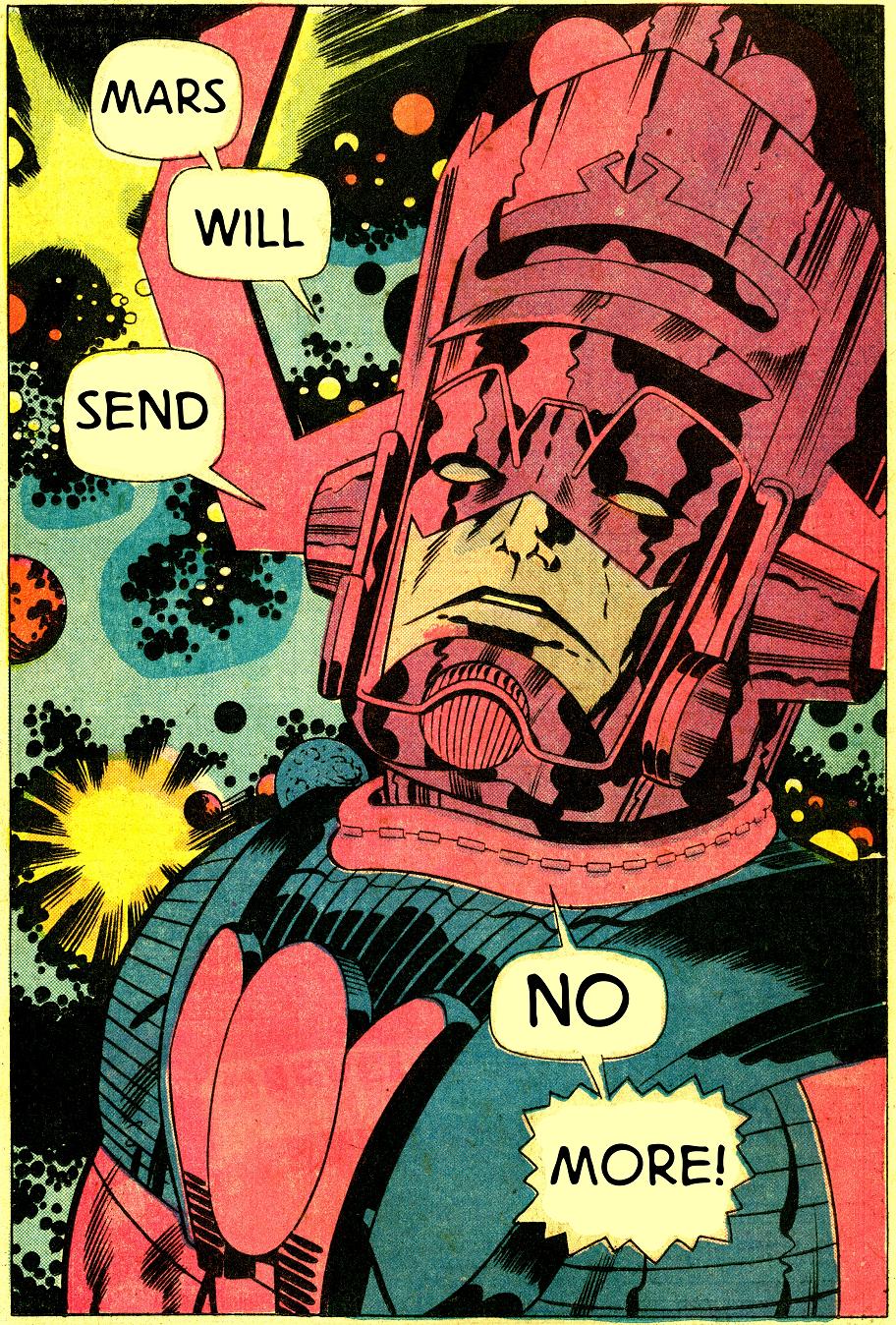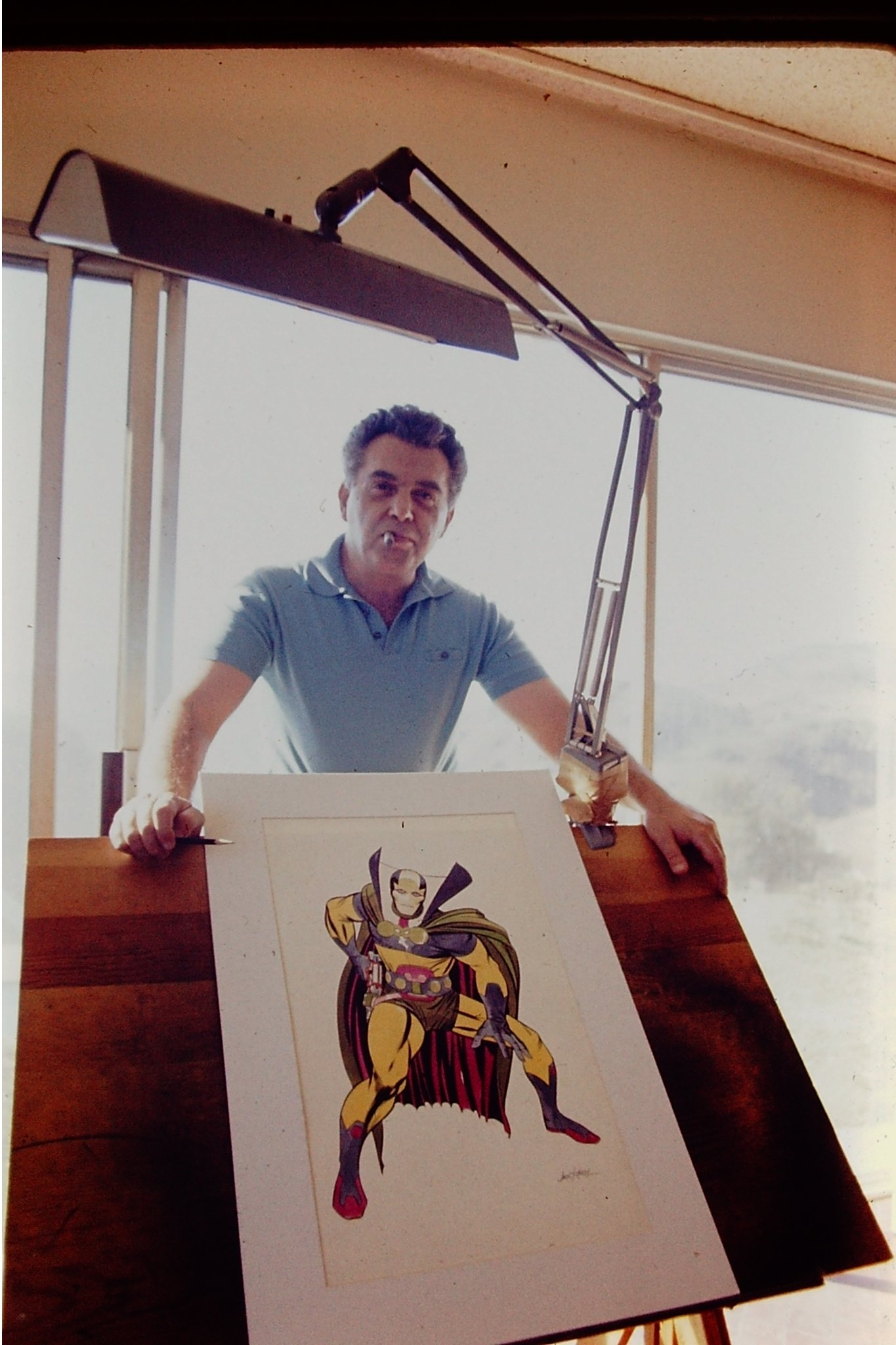
GROTH: Can you explain what you mean by that? Were there gangs? KIRBY: This was the toughest! From "Street Code," lettered by Bill Spicer From Silver Star, inked and lettered by Mike Royer ©The Jack Kirby Estate You know, the punches were real, and the anger was real, and we’d chase each other up and down fire escapes, over rooftops, and we’d climb across clotheslines, and there were real injuries. KIRBY: It’s not even amusing now that I think about it. GROTH: Now, when you say you were jumped and your feet were sticking out of a pile of bodies, it sounds amusing now, but I assume it wasn’t amusing then. And he’d pull me out from under this pile, and he’d whale in to them. He was about 6’ 1”, very broad kid, and when I came out of school, I’d be jumped by all these guys, and he’d see my feet sticking out of this pile and dive in. He passed away, so I’m the only one left in the family. I always wore turtleneck sweaters and knickers when I could get them. You know, we couldn’t wear the best of clothes.


They had to support their families, and they did it on very little, and so we had very little. And the place for all immigrants was the factories. KIRBY: My father worked in a factory like everybody else’s father. KIRBY: Where I came from, Suffolk Street? It still is, and Norfolk Street next to it still is. My boss was playing golf, and he was shooting golf balls through an upturned telephone book, see? That’s the kind of job I wanted! I knew that there was something better, and instinct told me that it was uptown, and I’d walk every day from my block to 42nd Street where the Daily News was, where I could be near the Journal, the Hearst newspapers. I got sick of chasing people all over rooftops and having them chase me over rooftops. It was right next to Norfolk Street, and I went to school at P.S. GARY GROTH: Now this is the Lower East Side. When I visited New York, somebody thought it would give me a big thrill if he took me down there where I grew up, and I’d be thrilled by the sight of my humble origins, and I hated the place. It was very hard for a young man to get a nickel from his mother, but somehow you managed. We paid $12 rent a month, and a nickel was worth maybe the equivalent of a dollar today. My family came from Austria, both my mother and my father. JACK KIRBY: I don’t know where your father comes from, but where I came from, everybody was an immigrant.

My thanks to them both, specifically for helping assemble artwork illustrating this interview, and more generally for their friendship over the last half dozen years.Īll images written and drawn by Kirby unless otherwise noted. Jack’s wife, Roz, sat in on the interviews and helped recall with precision key points in Jack’s career. This interview was conducted in three different sessions over the summer of 1989 at the Kirby’s comfortable home in Thousand Oaks, a suburb of Los Angeles. Though the refined eyes of the aesthete may consider Kirby’s work crude, ornery, and anti-intellectual, the fact remains that he combined the virtues and limitations of his class with a stubborn genius to produce a body of comics work that has remained consistently true to its source and is unparalleled both in quantity and quality. A dubious contribution to the American comic book, you may think, until you realized that it wasn’t Kirby’s fault that hacks and no talents, aided and abetted by opportunistic publishers, have been ripping off his work and plagiarizing him wholesale for decades. Growing up on the Lower East Side shaped his life and his work which, combined with a robust imagination and seemingly inexhaustible energy, substantially shaped the trajectory of the American commercial comic book. Although I had known Jack for some time and spoken to him not infrequently prior to conducting this “formal” interview, it was not until I read over the transcript that I understood just how thoroughly Jack is a child of his time and place. Renowned as one of the handful of true artistic giants in the history of comic books, it’s difficult to come up with encomiums that have not become commonplace. It’s accurate enough to refer to Jack Kirby as an American original, but it’s hard to know where to place the emphasis - on American or original.

From the TCJ Archives Jack Kirby Interviewįrom The Comics Journal #134 (February 1990) Captain America #8, 1941


 0 kommentar(er)
0 kommentar(er)
